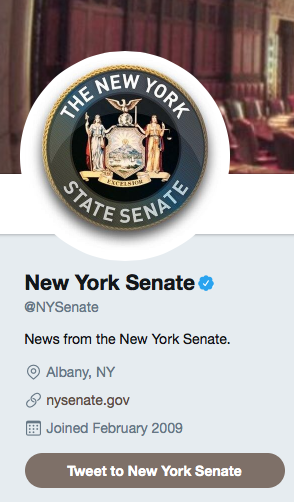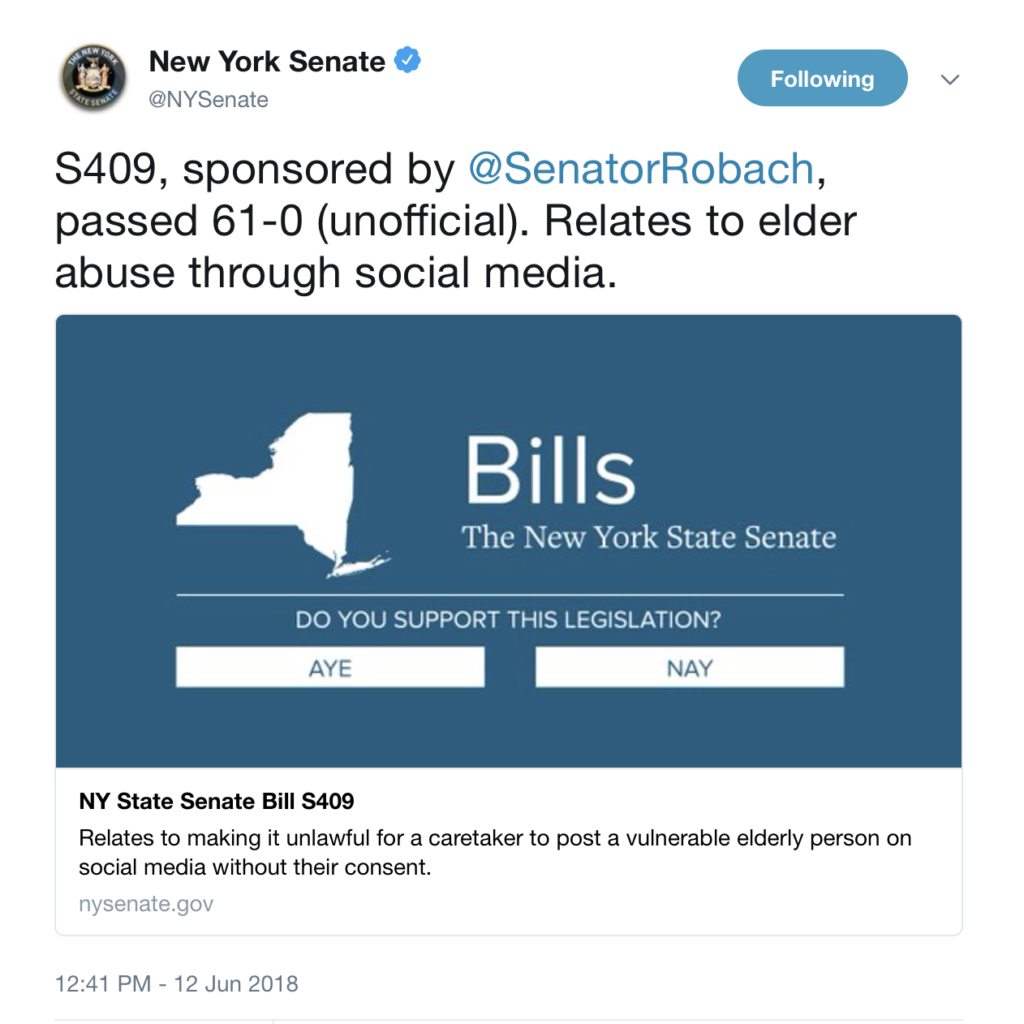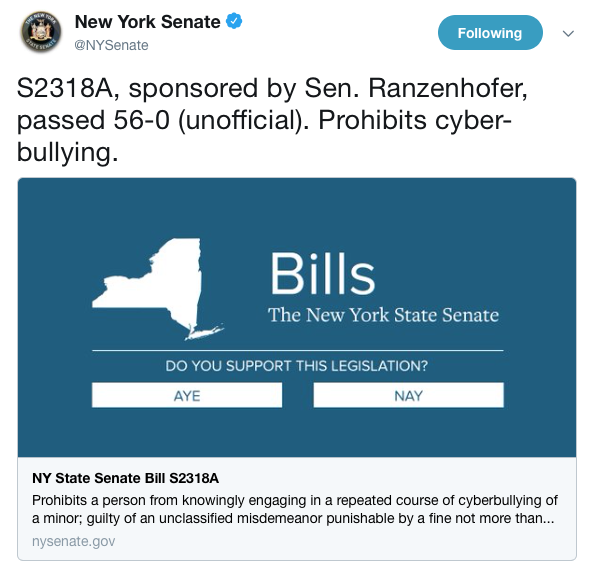
I stumbled across this story quite by accident. The New York Legislature is in session and a flurry of bills are being passed. And I happened to look one of them up.
This post, however, isn’t about the bill but about the Senate’s website. Specifically, there is a comment section for the bills being proposed and passed, and that comment section has restrictions.
Restrictions? Yeah, you read that right. This is a website devoted to public policy, owned and operated as the official arm of the Senate, and it restricts what you can say relative to those policy issues. It restricts open debate, which any semi-conscious high school student will tell you runs headlong into the First Amendment.
The offending rules for the comments includes the completely subjective “hate speech,” about which there is no accepted definition, as well as things that are “off topic,” or profanity.
These are the comment rules that you can see near the bottom of any page that shows the status of bills, with a few highlights that I added:
Open Legislation comments facilitate discussion of New York State legislation. All comments are subject to moderation. Comments deemed off-topic, commercial, campaign-related, self-promotional; or that contain profanity or hate speech; or that link to sites outside of the nysenate.gov domain are not permitted, and will not be published.
But who decides what is off-topic? One need not be a long time denizen of cyberspace to see that many people think their comments are on topic while others think they’re off.
And what is profane? Are people restricted to George Carlin’s seven dirty words or is there some other list for people to consult? Is it my list or your list and what happens when one of our lists changes? And what happens if someone simply wants to write, “Fuck this bill“? You know what? The Supreme Court has already decided that this sort of profanity is protected speech. (Cohen v. California)
What is campaign-related if you object to a bill and its sponsors and think they should be tossed out of office on their ears for having proposed such fool-hardy nonsense?
Is it self-promotional if you give a personal story of what horror you think may befall your company if the bill is passed? Can you name your company?
And, most importantly, who is the gatekeeper for what people are permitted to say to their Senators via these comments?
I’m willing to bet that no legislator has ever given a thought to the comments section as it’s rarely used by my observation. But it’s prohibitions on speech seem to present clear First Amendment issues, making this a problem waiting to happen.



